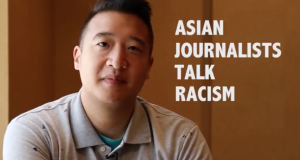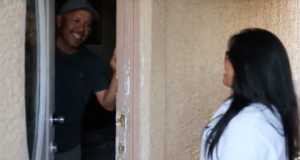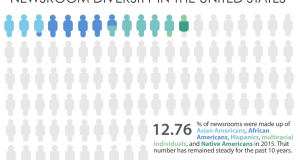When Yvonne Leow talks about the reasons why AAJA members should vote for her as president on Thursday at the national convention in Las Vegas, she doesn’t have to worry about losing the election. That’s because there’s no one running against her.
In fact, the competition is non-existent for AAJA’s top spot since 2012. And this year, neither of the other two open leadership positions have more than one person running.
“It’s a concern when people aren’t stepping up to make things work. It’s a concern over level of interest,” said Pia Sarkar, deputy editor for the Associated Press’ East region and candidate for AAJA vice president of civic engagement this year. “I don’t think there’s any reason to believe the association will collapse, but we can’t be complacent.”
Many journalists say they don’t want to run for national office because they lack the time and finances. With tighter budgets, fewer media organizations are willing to underwrite costs for employees to fly to conventions, take time off for board meetings or participate in other association-related activities.
The result is a decreasing level of participation in groups like AAJA, especially in leadership positions, which demand a consistent commitment.
“Traditionally, companies were partners in letting their employees be officers, but as belts get tightened, companies have stopped taking advantage of that opportunity,” said Neal Justin, a TV critic for the Minneapolis Star Tribune. “So a lot of people who run have to do so paying out of their own pocket and using up their own vacation time. A lot of people aren’t in a position to do that.”
But having a consistently small candidate pool can have real consequences. In many cases, it can mean fewer people are committed to the organization – a particular worry for AAJA, which is sustained through voluntary members and leaders.
“I believe elections should be contested,” said AAJA treasurer Shawn Nicole Wong, who is running for reelection and is a media producer and urban consultant. “A pattern of uncontested elections can lead to a lack of diversity of candidates and ideas.”
Wong said the Los Angeles chapter reimburses her for travel costs related to her officer position. Not all chapters have the funds to do that. In some cases, AAJA’s national board may provide limited financial assistance.
Some AAJA members say the organization needs to do a better job of convincing companies of its value.
“I really think, especially for young people, the opportunity to lead and handle budgets and organize workshops are going to make them better journalists and better employees,” Justin said. “If I was a manager, I’d be looking at people who have the experience of being an officer, saying they probably learned stuff that will benefit them and my newsroom in the future.”
Others say AAJA needs to focus on building a pipeline for leaders to move up through the organization.
“Associations can’t just put out a call for nominations and expect that people will sign up,” said David Steinberg, copy desk chief at the San Francisco Chronicle and former president of UNITY, a group that promotes diversity in journalism. “We have to develop talent, foster it, bring people into all levels of the association.”
Leow said she plans to do just that, if elected to a two-year term, by giving members reasons to remain invested in AAJA throughout their career.
“It ultimately comes down to relevance,” said Leow, a member of Vox Media’s revenue strategy team. “AAJA needs to continue challenging our assumptions and advocating for diverse communities and journalists.”
With no one running against her, Leow will get the opportunity to do that.
 VOICES Publishing from the AAJA National Convention
VOICES Publishing from the AAJA National Convention








